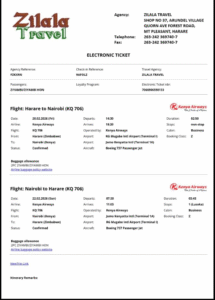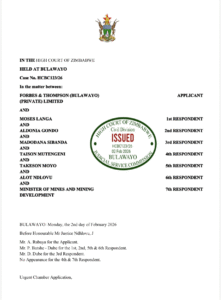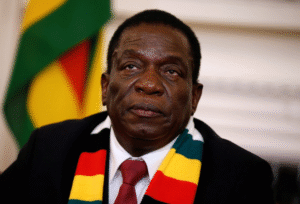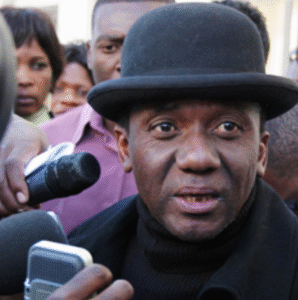COUP IN ZIMBABWE: A MOVE TO ESCAPE ACCOUNTABILITY FOR GENOCIDE
In 2017, President Emmerson Mnangagwa and his military allies staged a coup that removed former President Robert Mugabe from power. While many thought the coup was to save their positions and privileges, former Central Intelligence Organisation (CIO) deputy Director-General Lovemore Mukandi says there was a deeper reason. The real motive, he claims, was to avoid being held responsible for the Gukurahundi genocide. This genocide occurred in the 1980s, and it is believed that Mnangagwa, who was then the State Security Minister, played a key role in it.
The Gukurahundi genocide was one of the darkest moments in Zimbabwe’s history. During this time, thousands of people in Matabeleland were killed by the Zimbabwean military. Mugabe, who was the president, is seen as the architect behind the genocide. Mnangagwa, as State Security Minister, enforced the operation, while other ministers like Enos Nkala, Maurice Nyagumbo, Nathan Shamuyarira, Simbi Mubako, Sydney Sekeramayi, Dzingai Mutumbuka, and Frederick Shava played their parts in agitating the process.
Other figures, such as Callistus Ndlovu, John Mbedzi, and Mark Dube, who had joined Zanu after defecting from Zapu, became notorious for their roles. Mnangagwa, in 2018, declared Mbedzi a national hero, a move that upset Vice President Kembo Mohadi. Mohadi, who was a victim of Gukurahundi, had political rivalries with Mbedzi. Mbedzi, along with Nkala, Ndlovu, and Dube, became a menace in Matabeleland. Nyagumbo, who was Zanu’s commissar at the time, also played a significant role in this conflict.
Senior army commanders from the 1980s, such as retired General Vice President Constantino Chiwenga, who was the commander of 1 Infantry Brigade in Bulawayo, have been named as crucial players in the Gukurahundi killings. Many of these commanders, including Mnangagwa, have managed to avoid being held accountable for their roles in the atrocities.
Mukandi’s claim that Mnangagwa and his allies staged the coup to avoid prosecution is not unique in history. There have been several cases where leaders used military power to stay in control and escape punishment for human rights abuses. In Zimbabwe’s case, the military’s role in politics goes beyond the coup of 2017. The Zimbabwean military had a history of human rights violations long before they took power in 2017. After the coup, they forced Mugabe to resign, and Mnangagwa, who was Vice President at the time, took over as President. Many of the military leaders involved in the coup were rewarded with key positions in Mnangagwa’s new government.
According to Mukandi, Mnangagwa and his military allies orchestrated the coup to stop Mugabe from appointing a successor who might have prosecuted them for the human rights abuses they committed during Gukurahundi. It is suggested that Mugabe’s preferred successor was Sekeramayi. However, Mukandi also claims that Sekeramayi was one of the agitators during Gukurahundi, meaning that even if he had come to power, he likely would not have prosecuted those responsible.
The coup shows the risks of military involvement in politics. Leaders who come to power through military force often do so to avoid accountability for their actions. In Zimbabwe’s case, the coup not only kept Mnangagwa and his allies in power but also allowed them to escape justice for the atrocities committed during Gukurahundi.
Today, many people in Zimbabwe still feel the impact of Gukurahundi. The victims and their families continue to seek justice, but the leaders responsible remain in power. The military’s role in Zimbabwean politics has made it difficult for anyone to hold these leaders accountable. As long as the military continues to control key aspects of the government, it is unlikely that justice will be served for the victims of Gukurahundi.
The events of 2017 serve as a reminder of the dangers of military coups. When leaders use force to take power, they often do so to protect themselves, not the people they are supposed to serve. In Zimbabwe, the military coup has left the country in the hands of those responsible for past human rights abuses. These leaders have managed to avoid accountability, leaving the victims of Gukurahundi without justice





